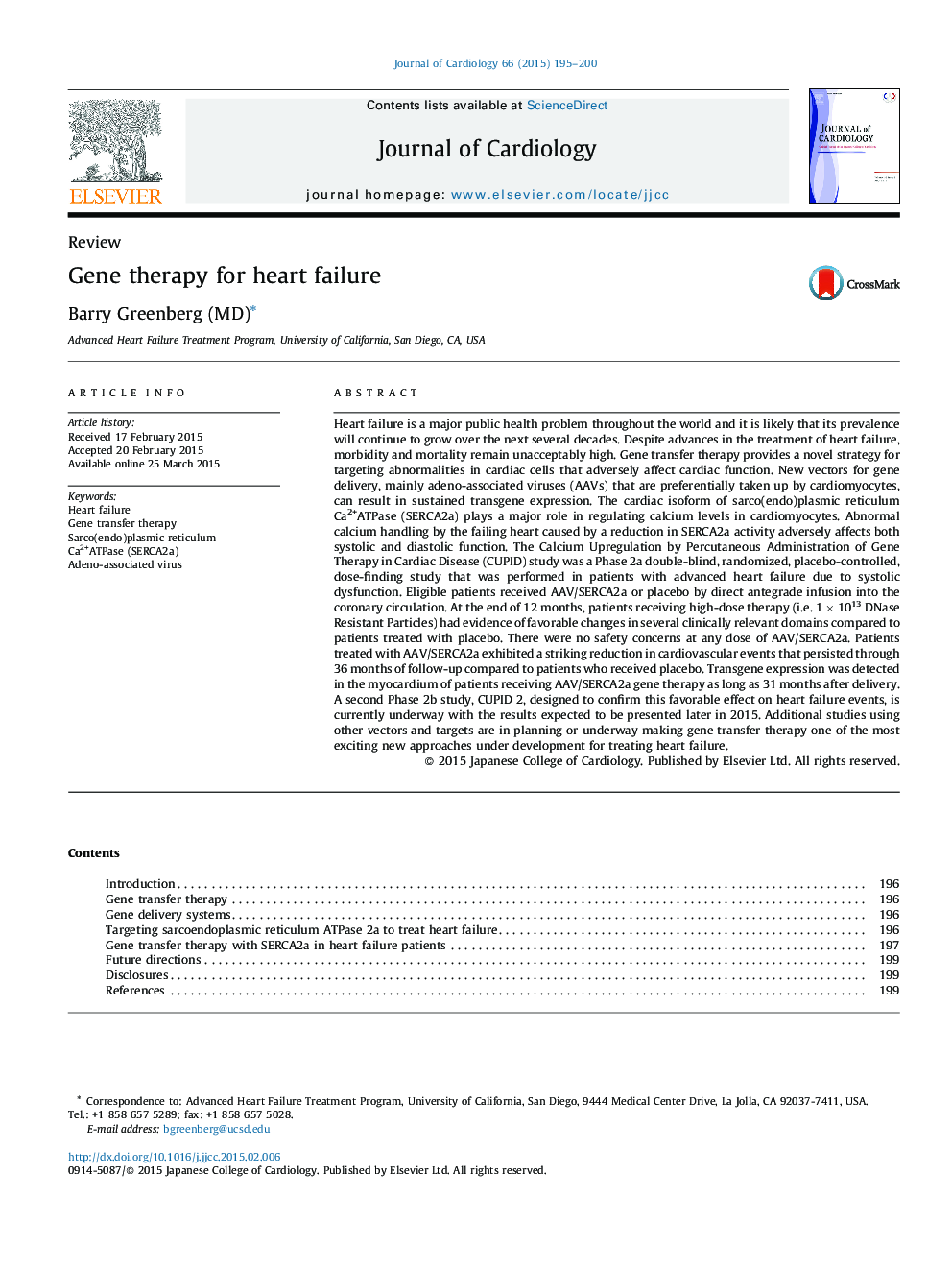| Article ID | Journal | Published Year | Pages | File Type |
|---|---|---|---|---|
| 2962877 | Journal of Cardiology | 2015 | 6 Pages |
Heart failure is a major public health problem throughout the world and it is likely that its prevalence will continue to grow over the next several decades. Despite advances in the treatment of heart failure, morbidity and mortality remain unacceptably high. Gene transfer therapy provides a novel strategy for targeting abnormalities in cardiac cells that adversely affect cardiac function. New vectors for gene delivery, mainly adeno-associated viruses (AAVs) that are preferentially taken up by cardiomyocytes, can result in sustained transgene expression. The cardiac isoform of sarco(endo)plasmic reticulum Ca2+ATPase (SERCA2a) plays a major role in regulating calcium levels in cardiomyocytes. Abnormal calcium handling by the failing heart caused by a reduction in SERCA2a activity adversely affects both systolic and diastolic function. The Calcium Upregulation by Percutaneous Administration of Gene Therapy in Cardiac Disease (CUPID) study was a Phase 2a double-blind, randomized, placebo-controlled, dose-finding study that was performed in patients with advanced heart failure due to systolic dysfunction. Eligible patients received AAV/SERCA2a or placebo by direct antegrade infusion into the coronary circulation. At the end of 12 months, patients receiving high-dose therapy (i.e. 1 × 1013 DNase Resistant Particles) had evidence of favorable changes in several clinically relevant domains compared to patients treated with placebo. There were no safety concerns at any dose of AAV/SERCA2a. Patients treated with AAV/SERCA2a exhibited a striking reduction in cardiovascular events that persisted through 36 months of follow-up compared to patients who received placebo. Transgene expression was detected in the myocardium of patients receiving AAV/SERCA2a gene therapy as long as 31 months after delivery. A second Phase 2b study, CUPID 2, designed to confirm this favorable effect on heart failure events, is currently underway with the results expected to be presented later in 2015. Additional studies using other vectors and targets are in planning or underway making gene transfer therapy one of the most exciting new approaches under development for treating heart failure.
